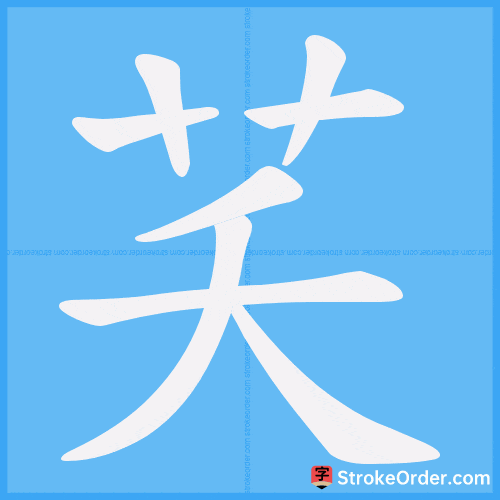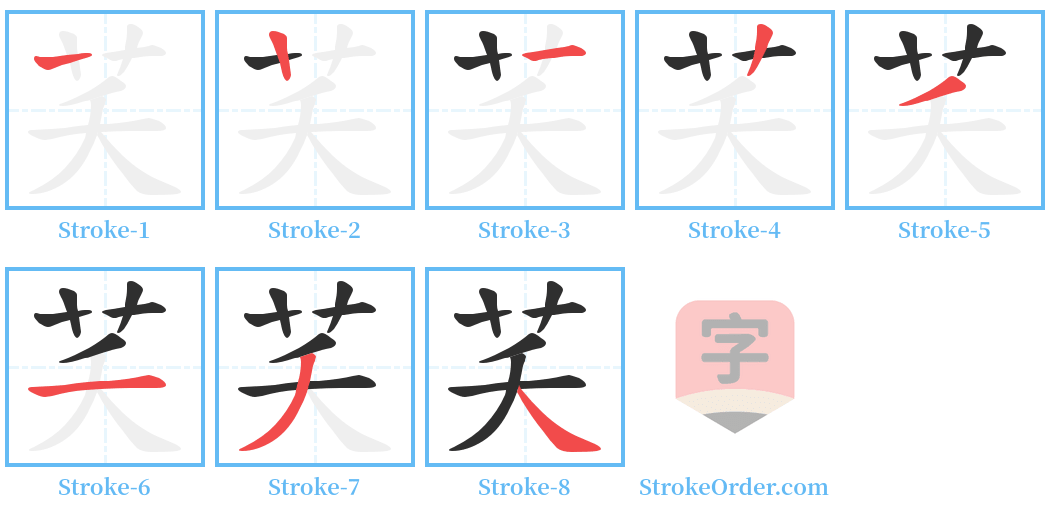芺 Stroke Order
Animated Stroke Order of 芺

Stroke Order Diagrams for 芺

Information of 芺
Pinyin
ǎo
Radical
艹
Strokes
7 strokes
Usage
★★
Definition
芺 (ǎo)
1. A type of grass mentioned in ancient texts, also known as "bitter 芺". The young shoots are edible.
- 名词:一种草。可供食用。《说文解字·艹部》:“芺,草也。味苦,江南食之以下气。”《尔雅·释草》:“钩芺”句下汉·郑玄·注:“钩芺,大如拇指,中空,茎头有台,似蓟,初生可食。”宋·邢昺·疏:“钩芺,一名钩,一名芺。”
- Noun: A type of grass. Edible. "Shuowen Jiezi, Grass Radical": "芺, a type of grass. Taste is bitter, consumed in Jiangnan leads to a stomachache." "Erya, Explanation of Grass" under "钩芺": Han dynasty scholar Zheng Xuan noted: "钩芺 is as big as a thumb, hollow in the middle, with a platform at the top of the stem, resembling thistles, and can be eaten when young." Song dynasty scholar Xing Bing commented: "钩芺, also known as 钩, also known as 芺."
2. It specifically refers to "苦芺" (English: ovelleaf thistle), also called 钩芺. It is a perennial herb from the Asteraceae family, specifically from the genus Cirsium (Cirsium ovalifolium), characterized by sharply serrated leaves and is edible when young.
- 名词:即苦芺 (English: ovelleaf thistle), also known as 钩芺, a type of perennial herb from the Asteraceae family (Cirsium ovalifolium), with leaves that have sharp serrations, edible when young.
- Noun: Refers to "苦芺" (English: ovelleaf thistle), also called 钩芺. A perennial herb from the Asteraceae family, (Cirsium ovalifolium), with sharply serrated leaves, edible when young.